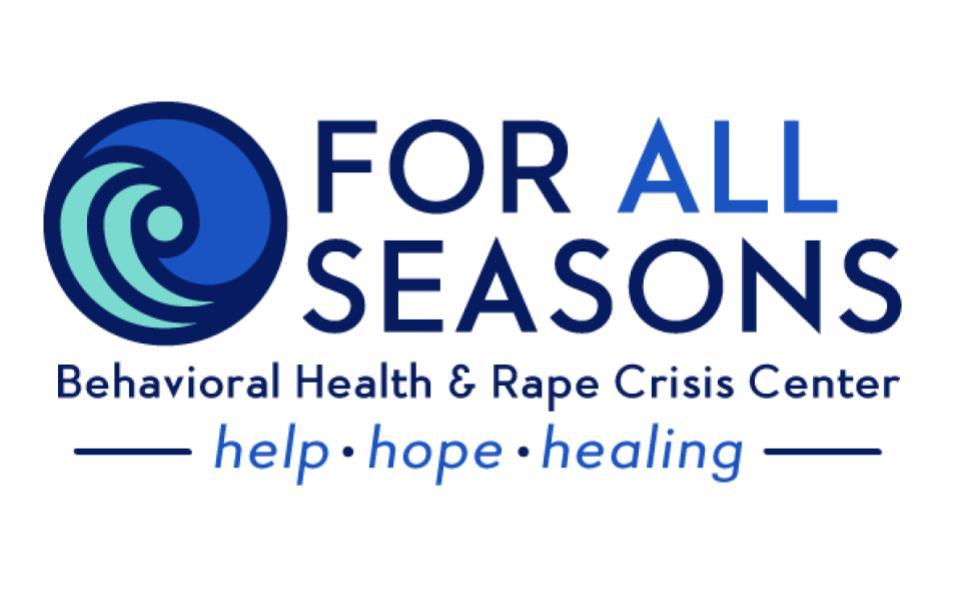As our community continues to process and grieve the tragedy that unfolded in Uvalde, TX earlier this week, For All Seasons offers two helpful resources to guide adults, parents, and caregivers as they navigate difficult conversations with children and adolescents. Knowing that children benefit from consistent connection with the adults in their lives, the first resource is a general guide for engaging youth in hard conversations around topics like stress and anxiety. The second resource is specific to talking with children in the wake of a tragedy.
These printable discussion guides can be downloaded from For All Seasons at forallseasonsinc.lpages.co/youth-discussions
For All Seasons offers the following tips:
Start with curiosity — what does your child know about the event? Even if you haven’t yet discussed it together, the child may have heard the news from media sources or classmates. Remember that your child’s perception of what has happened may differ from reality. Gently correct misunderstandings.
Assure your child that it is normal to be sad or scared when events like these occur. It is also OK to admit that you, too, are feeling sad, scared, or angry. Try to acknowledge that you are having these feelings and that they are normal. Reassure your child that there is nothing wrong with having big or scary emotions. Tell your child that no topic is too big or scary to talk about.
Encourage your child to ask questions, both now and in the future. David Schonfeld, MD, Director of the National Center for School Crisis and Bereavement (https://www.schoolcrisiscenter.org/director/) writes, “Like adults, children are better able to cope with a crisis if they feel they understand it. Question-and-answer exchanges provide you with the opportunity to offer support as your child begins to understand the crisis and the response to it.”
Point out that many people are working to keep your child safe. Talk about the many people in our community who work each day to ensure safety. Consider pointing out people whose job it is to keep us safe – teachers and other school staff, law enforcement, parents, EMS workers, and more.
Be honest during your conversation, but keep it appropriate for your child’s age. The National Association of School Psychiatrists offers the following guidelines to make your conversation age-appropriate:
- Early elementary school children need brief, simple information balanced with reassurances that their school and homes are safe. Emphasize that adults are there to protect them.
- Upper elementary and early middle school children will be more vocal in asking questions about whether they truly are safe and what is being done at their school. Some students may need assistance separating reality from fantasy. Discuss efforts of families, schools, and community leaders to provide safety.
- Upper middle school and high school students will have strong and varying opinions about the causes of violence in schools and society. They will share concrete suggestions about making their homes, schools, and communities safer and how to prevent tragedies in society. Emphasize your child’s role in maintaining safety by following laws, rules, and guidelines (e.g., not providing building access to those they don’t know, reporting strangers in school settings or elsewhere, reporting threats to the school safety made by students or community members, etc.). Ensure that your child feels empowered to communicate any personal safety issues to trusted adults and that they know how to access support for emotional needs.
Remember that it is OK that you don’t have all of the answers. The beloved Mr. Rogers once shared, “If the answer is ‘I don’t know,’ then the simplest reply might be something like, ‘I’m sad about the news, and I’m worried. But I love you, and I’m here to care for you.’”
Be patient and open to having multiple conversations over time. Your child may not have much to say in the moment. Give them some time and let them know they can come back with more questions or to talk about the events when they are ready.
Help is available. If you or your children are feeling stuck or overwhelmed, reach out. There are many resources in your community and For All Seasons is here to help.
For All Seasons professionals are available 24/7. Call 410-822-1018 or at our confidential 24-hour crisis hotlines in English: 410-820-5600, Español: 410-829-6143, and via text (English or Español) at 410-829-6143.
This guidance has been adapted, with gratitude, from Colorín Colorado.
For All Seasons provides the highest quality mental health and victim services to children, adults, and families across Maryland’s Eastern Shore. Services are offered in both English and Spanish and include therapy, psychiatry, victim advocacy, 24-hour crisis hotlines, outreach, and community education. For further information, contact For All Seasons at 410-822-1018 or visit forallseasonsinc.org.



Write a Letter to the Editor on this Article
We encourage readers to offer their point of view on this article by submitting the following form. Editing is sometimes necessary and is done at the discretion of the editorial staff.